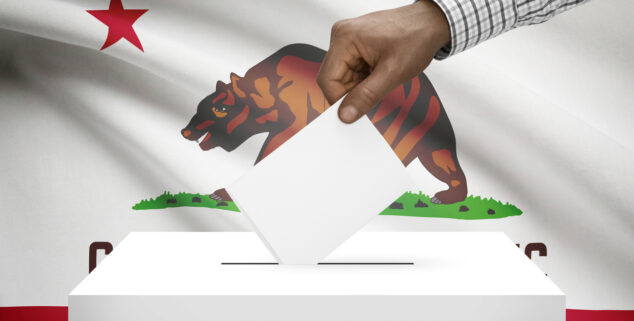News
The people’s lawmaking power versus the legislature’s
 Image by Serhej Calka
Image by Serhej CalkaI am tackling the age-old question in California lawmaking: “Who holds more lawmaking power – the People or the Legislature? What is the answer? Let’s take a look.
California’s Constitution provides the three branches of government, as well as the rights of direct democracy. Article III, Section 3 provides the separation of powers among the three branches of our state government: legislative, executive, and judicial.
Article II concerns voting, the initiative and referendum, and the recall. Specifically, Section 1 provides the following: “All political power is inherent in the people. Government is instituted for their protection, security, and benefit, and they have the right to alter or reform it when the public good may require.”
 Article IV concerns the legislative branch. Specifically, Section 1 provides the following: “The legislative power of this State is vested in the California Legislature which consists of the Senate and Assembly, but the people reserve to themselves the powers of initiative and referendum.”
Article IV concerns the legislative branch. Specifically, Section 1 provides the following: “The legislative power of this State is vested in the California Legislature which consists of the Senate and Assembly, but the people reserve to themselves the powers of initiative and referendum.”
Note that Section 1 of Article II grants the people “all political power.” What is the definition of political power? Is political power the same as legislative power? Other states, such as Utah and New Jersey, use the same language that California does (i.e., political power). But is political power broader or narrower than legislative power?
The term “political power” used in Article II is obviously different than the term “legislative power” used in Article IV, which gives “the legislative power” to the Legislature. Article II says “all political power” is given to the People, while “the legislative power” is given to the Legislature, but the People also have the rights of initiative and referendum. What is the definition of legislative power?
It is also often stated by the California Supreme Court that the Legislature’s plenary lawmaking powers are only limited by the state Constitution (as opposed to the United States Constitution that grants specific powers to the U.S. Congress). As a result, the Legislature can enact statutes and propose constitutional amendments, as well as revisions (which must be voted upon by the people). So, us this more power than what the People possess? Or is it less power?
Article IV also reserves to the People the powers of initiative and referendum. The initiative is the power to propose and enact constitutional amendments or statutes. The referendum is the power to repeal a statute that has been enacted by the Legislature. Do these powers of direct democracy given to the People more or less power than “the legislative power” given to the legislative branch of state government.
Some view the legislative branch as being the most powerful of the three branches of our state government because this branch is in charge of making the laws, and they can override a gubernatorial veto, and control state spending through the budget process. They also provide limited lawmaking power (i.e., rulemaking authority) through statute to the executive branch.
At the same time, in California, the People and the Legislature share lawmaking power. The courts in this state have generally viewed the Legislature as having plenary power over lawmaking, but it is limited by the state Constitution. One of those limits is the power of the electorate to propose new laws or repeal existing ones through the initiative and referendum processes.
For example, the California Supreme Court, in its decision in Rossi v. Brown (1995) 9 Cal.4th 688, 38 Cal.Rptr.2d 363; 889 P.2d 557, stated:
The only express constitutional limitations on the people’s exercise of the statewide initiative power are those in sections 8 and 12 of article II. Section 8, subdivision (d) of article II bars initiative measures “embracing more than one subject,” and section 12 of that article bars constitutional amendments and statutes which “name[] any individual to hold any office, or name[] or identif[y] any private corporation to perform any function or to have any power or duty ….”
Based upon this, the state’s high court views the electorate as having fewer limitations on its lawmaking power than those imposed on the Legislature. In fact, the California Supreme Court in the Rossi case stated, “[t]he people’s reserved power of initiative is greater than the power of the legislative body.” Why did the state’s high court decide the question in the People’s favor?
First, one could state that the People have plenary power over lawmaking (just like the Legislature does), and can pursue an initiative regarding any appropriate topic that can be addressed by initiative. As a result, both the voters and the Legislature share the power of lawmaking. However, this leads to the question whether one body is more powerful than the other. Which body has ultimate power? Can either body overrule the other?
Some legal scholars argue that, because the voters can enact a constitutional amendment directly, the voters have greater power to make laws than does the Legislature (who can propose one to the People to vote on). Others argue that there are fewer limits on the voters’ lawmaking powers than there are limitations on the Legislature’s powers as set forth in Article IV of the state Constitution. Still others argue that the voters could effectively repeal a statute or preclude the Legislature from acting in an area through the referendum process.
And, lastly, because the Legislature cannot make changes to a statutory initiative unless the voters agree, the People have greater power in enacting statutes. Article II, Section 10(c) provides, in part: “The Legislature may amend or repeal an initiative statute by another statute that becomes effective only when approved by the electors unless the initiative statute permits amendment or repeal without the electors’ approval.” As a result, the Legislature can only amend an initiative statute if the People’s initiative gives them such power.
As a result of these four factors, it would seem that the People have greater lawmaking authority than the Legislature does here in the State of California.
Want to see more stories like this? Sign up for The Roundup, the free daily newsletter about California politics from the editors of Capitol Weekly. Stay up to date on the news you need to know.
Sign up below, then look for a confirmation email in your inbox.

Leave a Reply